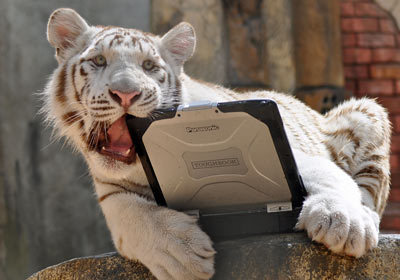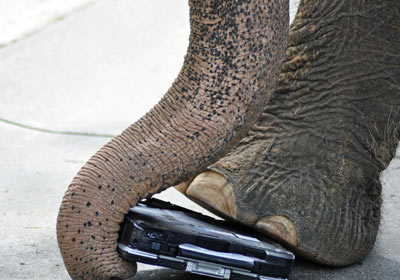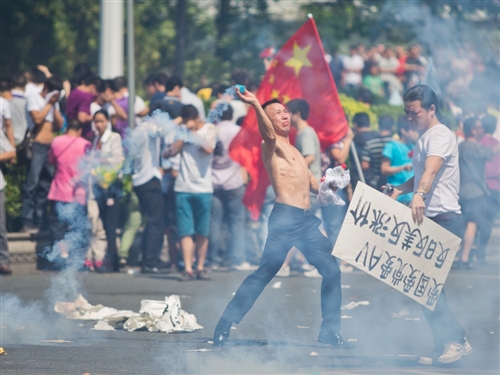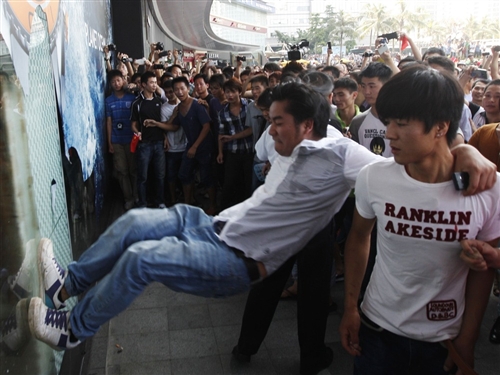Don’t believe manufacturers’ claims. We put Panasonic’s Toughbook through real survival tests.

BURLINGAME, Calif. — Call it the James Bond of laptops.
We dropped the Panasonic CF-30 “Toughbook,” kicked it, stood on it and tried to back over it with a Volkswagen JettaTDi. (That left a mark–on the pavement.)
We poured Diet Coke on the keyboard. Then we used the lid to crush the can.
You might think this is unnecessary testing for a laptop. Advertising is always brimming with over-the-top claims. We’ve heard about “durable” notebooks before. But the ones we lug to press conferences seem to be as touchy as a bunch of squirrels. Surely, Panasonic’s claims of toughness are, well, over-the-top.
We found, however, that Panasonic’s Toughbook performed as promised. Fair enough. So we came up with some tests that were decidedly unfair.
We used the Panasonic Toughbook to serve Doritos. Then we crushed the chips to dust between the keyboard and the screen, the same screen we used as a dartboard. The darts poked holes in the screen’s protective coating, but the display underneath remained undamaged. Not a single dead pixel.
So we presented the $3,460 Toughbook to Nalin, a white tiger who lives at Six Flags Discovery Kingdom in Vallejo, Calif. Nalin treated it like a cat toy, knocking it to the ground, gnawing on the screen and licking every inch of its surface. He must have smelled those Doritos.
The tiger chewed off five keys, but that turned out to be just cosmetic. We could still type without them, and were able to glue four back on later (we made sure Nalin didn’t swallow anything). The fifth just snapped back into place.

Next, Liz, a 10,000-pound Asian elephant, stepped on it, stood on it, dropped it onto a concrete slab, stood on it again–balanced on three legs–and then tossed it around some more. Liz put two small cracks in the laptop’s magnesium alloy lid and popped the hard drive out.
The drive slid right back in to the Toughbook’s chassis, which rebooted without a glitch. The screen was undamaged, although it was hard to see through the tiger hair and congealed drool.
That’s when we remembered: We’re allergic to cats.
Five days later, we turned from tests to something better described as execution: We took the laptop to the Jackson Arms firing range in South San Francisco to shoot it with a Ruger Mark III .22 pistol from 15 yards.
Dell declined to loan us a rugged laptop to shoot, saying they didn’t have the “inventory excess to participate this time around.”
Panasonic, meanwhile, was about to have one less notebook. We removed the battery to minimize the mess, and aimed.
Goodbye, Mr. Toughbook.
Or so we thought. We put a bullet through the laptop. Then we booted it up. We were able to log in. Our test file was still there. The screen had a hole in it, but was still usable.
Read morePanasonic’s Tiger-Resistant Laptop




